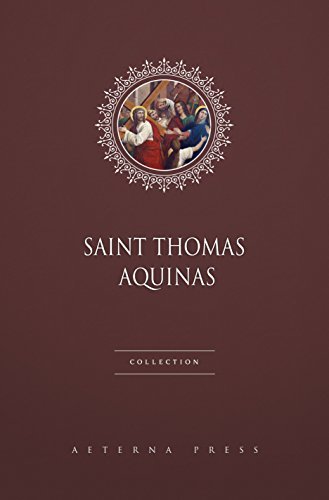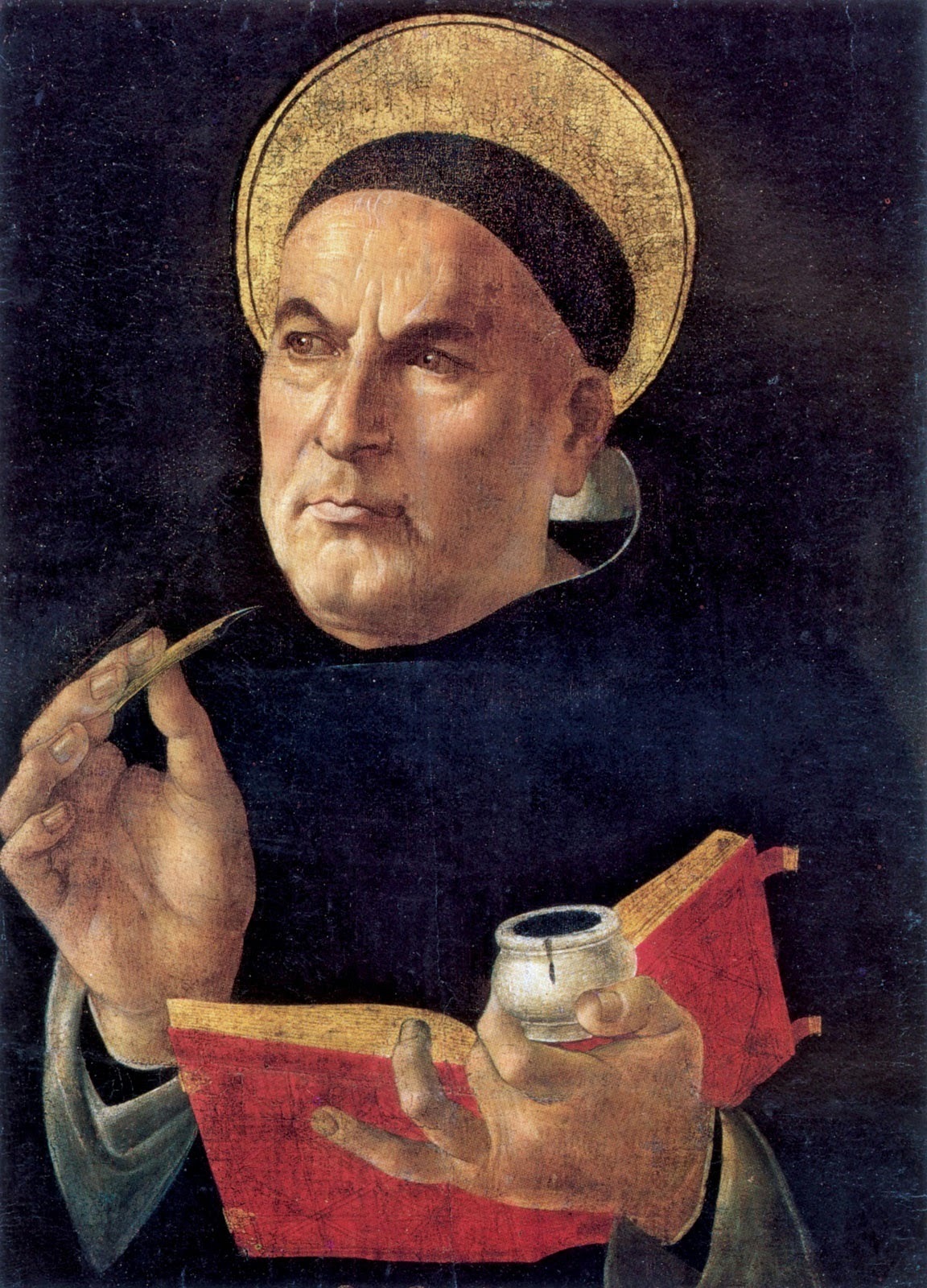
SAINT THOMAS AQUINAS COLLECTION [22 BOOKS] — Quality Formatting and Value—Active Index, Multiple Table of Contents for all Books—Multiple Illustrations Thomas Aquinas, O.P., was an Italian Dominican friar, Catholic priest, and Doctor of the Church. He was an immensely influential philosopher, theologian, and jurist in the tradition of scholasticism, within which he is also known as the Doctor Angelicus and the Doctor Communis. The name Aquinas identifies his ancestral origins in the county of Aquino in present-day Lazio, where his family held land until 1137. He was the foremost classical proponent of natural theology and the father of Thomism. His influence on Western thought is considerable, and much of modern philosophy developed or opposed his ideas, particularly in the areas of ethics, natural law, metaphysics, and political theory. Unlike many currents in the Church of the time, Thomas embraced several ideas put forward by Aristotle—whom he called "the Philosopher"—and attempted to synthesize Aristotelian philosophy with the principles of Christianity. The works for which he is best known are the Summa Theologiae and the Summa contra Gentiles. His commentaries on Sacred Scripture and on Aristotle form an important part of his body of work. Furthermore, Thomas is distinguished for his eucharistic hymns, which form a part of the Church's liturgy. —BOOKS—AN APOLOGY FOR THE RELIGIOUS ORDERS ARISTOTLE ON INTERPRETATION CATENA AUREA: COMMENTARY ON THE FOUR GOSPELS COLLECTED OUT OF THE WORKS OF THE FATHERS: VOLUMES 1 TO 4 COMMENTARY ON ARISTOTLE’S DE ANIMA COMMENTARY ON ARISTOTLE'S PHYSICS COMMENTARY ON THE METAPHYSICS COMPENDIUM OF THEOLOGY DE MEMORIA ET REMINISCENTIA EXPLANATION OF THE LORD'S PRAYER EXPLANATION OF THE TEN COMMANDMENTS NATURE AND GRACE: SELECTIONS FROM THE SUMMA THEOLOGICA OF THOMAS AQUINAS NINETY-NINE HOMILIES OF SAINT THOMAS AQUINAS: UPON THE EPISTLES AND GOSPELS FOR FORTY-NINE SUNDAYS OF THE CHRISTIAN YEAR OF GOD AND HIS CREATURES ON KINGSHIP: TO THE KING OF CYPRUS ON THE POWER OF GOD REFUTATION OF THE PERNICIOUS TEACHING OF THOSE WHO WOULD DETER MEN FROM ENTERING RELIGIOUS LIFE THE BREAD OF LIFE: OR SAINT THOMAS AQUINAS ON THE ADORABLE SACRAMENT OF THE ALTAR THE PERFECTION OF THE SPIRITUAL LIFE THE RELIGIOUS STATE: THE EPISCOPATE AND THE PRIESTLY OFFICE THE SOUL THE SUMMA CONTRA GENTILES THE SUMMA THEOLOGICA: COMPLETE EDITION PUBLISHER: AETERNA PRESS
Author

Philosophy of Saint Thomas Aquinas, a Dominican friar and theologian of Italy and the most influential thinker of the medieval period, combined doctrine of Aristotle and elements of Neoplatonism, a system that Plotinus and his successors developed and based on that of Plato, within a context of Christian thought; his works include the Summa contra gentiles (1259-1264) and the Summa theologiae or theologica (1266-1273). Saint Albertus Magnus taught Saint Thomas Aquinas. People ably note this priest, sometimes styled of Aquin or Aquino, as a scholastic. The Roman Catholic tradition honors him as a "doctor of the Church." Aquinas lived at a critical juncture of western culture when the arrival of the Aristotelian corpus in Latin translation reopened the question of the relation between faith and reason, calling into question the modus vivendi that obtained for centuries. This crisis flared just as people founded universities. Thomas after early studies at Montecassino moved to the University of Naples, where he met members of the new Dominican order. At Naples too, Thomas first extended contact with the new learning. He joined the Dominican order and then went north to study with Albertus Magnus, author of a paraphrase of the Aristotelian corpus. Thomas completed his studies at the University of Paris, formed out the monastic schools on the left bank and the cathedral school at Notre Dame. In two stints as a regent master, Thomas defended the mendicant orders and of greater historical importance countered both the interpretations of Averroës of Aristotle and the Franciscan tendency to reject Greek philosophy. The result, a new modus vivendi between faith and philosophy, survived until the rise of the new physics. The Catholic Church over the centuries regularly and consistently reaffirmed the central importance of work of Thomas for understanding its teachings concerning the Christian revelation, and his close textual commentaries on Aristotle represent a cultural resource, now receiving increased recognition.